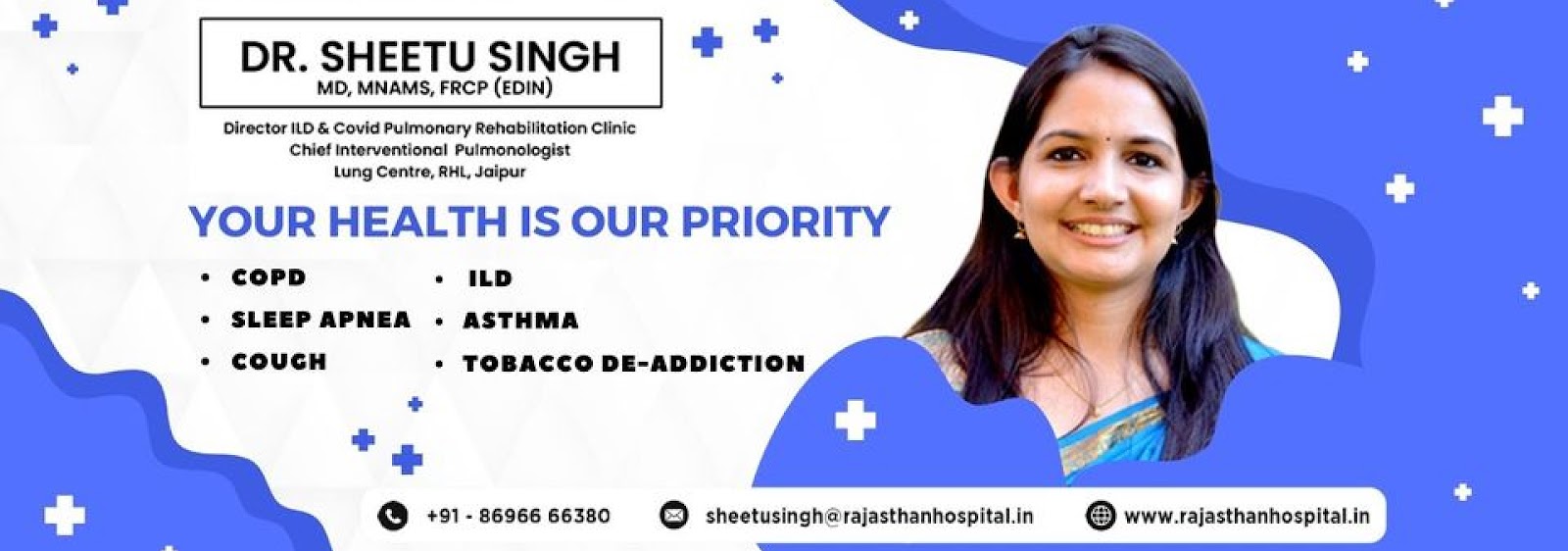Depending on the precise form of sleep apnea and how severe it is, there are numerous treatment options. All of these, while not a cure, can aid in preventing apnea episodes or lessen their frequency or severity. Several treatments should be a part of your daily routine. As long as you continue these therapies, this can eventually lessen or perhaps completely eradicate the negative consequences sleep apnea has on your life. If you are looking for a specialist doctor in India for the latest treatment of sleep apnea, then contact Dr. Sheetu Singh a top-notch doctor for obstructive sleep apnea treatment in India. Possible treatments include:
Conservative treatments
Oral appliances
Nerve stimulators
Surgery
Medications
Positive airway pressure and adaptive ventilation devices.
Dr. Sheetu Singh is the no.1 sleep apnea treatment specialist doctor India. Obstructive sleep apnea can frequently be resolved or improved with the help of these non-medical procedures or treatments. While they don't treat the underlying cause of apnea, they may reduce it to the point where it stops occurring or isn't severe enough to produce symptoms. These include:
Weight loss
Nasal sprays, adhesive strips, etc
Changing your position when sleeping and using sleep aids
Medical changes
Treating the underlying condition
Innovative Obstructive Sleep Apnea Treatment in India
Obstructive sleep apnea treatment in India has witnessed remarkable advancements in recent years. Medical specialists in India have created cutting-edge methods to efficiently treat obstructive sleep apnea due to a growing understanding of this sleep problem and its possible health hazards. Obstructive sleep apnea patients can now find trustworthy and reasonably priced treatment alternatives in India, enhancing their quality of life and general well-being.
Finding a specialist doctor for obstructive sleep apnea treatment India is crucial for individuals seeking effective and tailored care. Patients with this sleep issue, which can have a substantial negative influence on their health and well-being, must have sleep apnea treatment. Depending on the severity of the problem and the demands of the individual, there are numerous methods of therapy for sleep apnea. Continuous positive airway pressure (CPAP) therapy is a popular treatment option that uses a machine to continuously blow air into a mask. Dr. Sheetu Singh is an experienced doctor for obstructive sleep apnea treatment in India.
Overview of Sleep Apnea
When you have sleep apnea, your breathing frequently stops and starts while you are asleep. This can prevent your body from getting enough oxygen. It can cause daytime tiredness, loud snoring, or more serious problems like high blood pressure, or heart trouble. This condition is different from primary, regular, or snoring. Primary snoring can be brought on by nasal or throat issues, sleeping positions (particularly on one's back), being overweight or old, or using alcohol or other depressants. Obstructive sleep apnea treatment in India offers a wide range of options to address this prevalent sleep disorder. Primary snoring and sleep apnea-related snoring both result from the tissues in your throat vibrating, however, those who have sleep apnea typically do.
Take shallow breaths, choke, or gasp
Pause while they breathe (for over 10 seconds)
Snore much louder than those with regular snoring
Be restless
Symptoms & Causes of Obstructive Sleep Apnea Disease
There are numerous signs & symptoms of sleep apnea, some of which are more obvious than others. The symptoms consist of:
Excessive daytime sleepiness
Loud snoring
Awakening with a dry mouth or sore throat
Morning headache
Difficulty concentrating during the day
High blood pressure
Mood changes, such as irritability or depression
Decreased libido
Sudden awakening with choking or gasping
When the muscles in the back of your throat relax too much, it causes obstructive sleep apnea, which prevents normal breathing. The tongue, tonsils, the triangular portion of tissue hanging from the soft palate, and the back of your mouth's roof are all supported by these muscles. Overall, there are three main forms of sleep apnea, with some differences in how and why they happen. The types are:
Central sleep apnea (CSA)
Obstructive sleep apnea (OSA)
mixed/complex sleep apnea



I found this very useful. And if you are looking for Nasal Polyps Surgery in Zeta 1 <a href="https://drshubhityagi.in/nasal-polyps-surgery-zeta-1/</a> and book your appointment for today...
ReplyDeleteGreat article! Very informative. And if you are looking for ent specialist In greater Noida <a href="https://drshubhityagi.in/</a> and book your appointment for today...
ReplyDeleteInformative and engaging. And if you are looking for sleep apnea specialist <a href="https://drshubhityagi.in/sleep-apnea-surgery-noida/</a> and book your appointment for today..
ReplyDeleteThis was a helpful read. Also, in case readers here are looking for the best ENT doctor in Noida, I can vouch for Dr. Shubhi Tyagi — check out drshubhityagi.in for more info
ReplyDelete